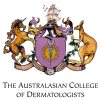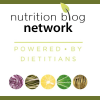About improving nutrition for a better quality of life
Optimum health is the biggest determinant of a good quality life, as the saying goes ‘health is wealth’. Quality of life is not just about living a long life but a life where you are always at your optimum best. It is important to understand that our body is like a machine which works well when there are enough amounts of good quality fuel and lubrication to prevent it from being worn out quickly.
This is where eating a nutritionally balanced diet comes into the picture. No doubt healthy eating helps you maintain your weight but it goes beyond that as nutrition influences every aspect of your life, as they say ‘you are what you eat’. Hence having a positive relationship with food is important as it is nourishment for the body that keeps us going.
Not eating adequately or avoiding certain food groups can lead to health issues, examples include not having adequate quantity of food which can make you feel weak due to the lack of energy. This may also cause you to feel low and irritable or cause constipation due to the lack of fibre in the diet which can cause bloating and discomfort.
So if you think about it, the more stress you put on this machine which is your body, the more you reduce its efficiency. The good news is that that if you eat right and also supplement that with an adequate amount of physical exercise, you are likely to keep a number of diseases such as heart disease and diabetes at bay and work towards leading a fulfilling life.
The following are some tips which can help enhance your quality of life
- Eat a Balanced Diet: This is a diet which covers all the essential food groups. A diet which includes a good amount of protein sources such as lean meat , eggs or legumes if you are a vegetarian; good quality carbohydrates such as wholegrain bread and cereals; all varieties of fruits and vegetables; low fat dairy as well as small amounts of good fats such as olive oil, avocado and nuts. Carbohydrates give us energy and fibre. Protein is essential for growth, tissue repair, immune function and the preservation of lean muscle mass. Fat is a source of energy as well as aids the absorption of fat soluble vitamins(A,D,E,K). Low fat dairy provides adequate amount of calcium to prevent diseases such as osteoporosis. Fruits and vegetables provide us with fibre, vitamins and minerals.
- Maintain Portion Control: Sometimes plates and bowls can be much larger than required. It would be a good idea to aim for the plate size to be less then 25cm. A quarter of a plate should consist of a fist size amount of breads and cereals like multigrain bread or basmati rice, one quarter of a plate should consist of palm size of trimmed meat, tofu or egg (protein) and half of the plate (2 open hands) should be a variety of vegetables such as carrot, broccoli, peas, capsicum, eggplant, lettuce, mushroom and onion.
- Have a Healthy Gut: Fibre from fruit, vegetables and wholegrain cereals and adequate quantities of water are essential for maintaining a healthy gut. The consumption of prebiotics and probiotics may also help with maintaining a healthy gut. There are more than 400 species of bacteria living in the large intestine but not all are beneficial. In order to promote a healthy gut, we want to increase the amount of beneficial bacteria.
Prebiotics refer to carbohydrates such as insulin present in foods such as garlic, asparagus and artichokes which get fermented in the gut. They help with constipation, calcium absorption and may also have a role to play in preventing diabetes.
Probiotics refer to the healthy bacteria in the gut. Prebiotics act as food for Probiotics. Probiotics refer to the bacteria which enhance the immune system, allow for optimal absorption of nutrients and for the production of Vitamin K. Sources include probiotic yoghurt, miso soup, kefir and tempeh. Probiotics help with constipation, diarrhoea and also help your body fight infections.
- Limit Treat Food and Drinks: Watch out for food and drinks which do not add value to your health such as deep fried foods, processed snacks such as biscuits and chips, ice cream, soft drinks and alcohol among others. These foods add stress to your body and the body has a tough time to metabolise them. The best idea is to keep these discretionary food items out of the kitchen as much as you can!
- Beware of False Health Claims: When it comes to making food choices, it is important to identify false health claims. A popular one is the one on the benefits of avoiding gluten in weight loss. There is no truth to this claim as avoiding gluten free foods is only beneficial for those who are intolerant to it. People who do not suffer from gluten intolerance and still choose to follow this might in fact be at risk of putting on more weight due to the high amounts of sugar in gluten free products.
You will reap the benefits tomorrow of investing time and effort into your health today. This is not to say that one cannot enjoy occasional treats ,but moderation is the keyword to remember.
Contact Us
This article was written by our Dietitian Juhi Bhambhaney who is a member of Dietitians Association of Australia. If you have questions about nutrition, make an appointment. We‘ll provide you with a simple and effective routine targeted to your concerns. Contact us today!
The post Nutrition for Better Quality of Life appeared first on ENT Wellbeing Sydney.










